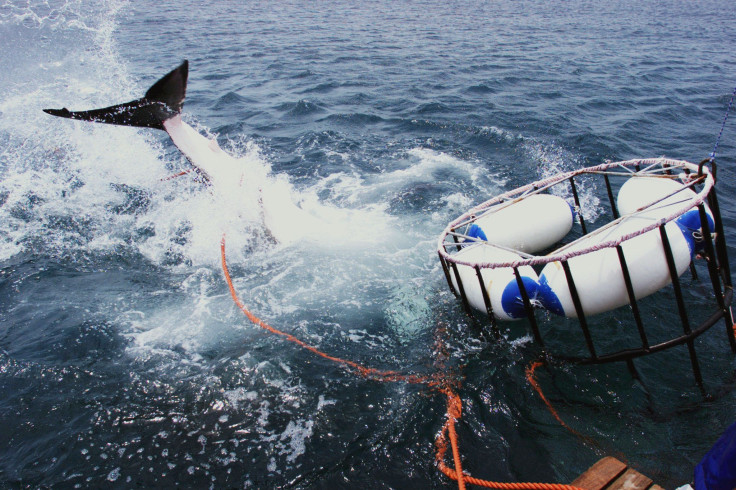Surfer Escapes Great White Shark Attack In Central California's Montana de Oro State Park

A surfer at the Central California coast was dragged under water by a great white shark and was bitten in the hip before he could reach the shore. The 50-year-old man was attacked on Sunday at the Sand Spit Beach in Montana de Oro State Park and was later airlifted to a nearby hospital.
The man, who is still unidentified, was pulled under the water and bitten by an 8- to 10-foot long juvenile shark, according to media reports. He reportedly resurfaced after several seconds and then paddled to the shore, where he was treated by two doctors on the spot. Doctors said that his injuries were not life-threatening.
“It was really radical,” Andrew Walsh, who was surfing along with the man who was attacked, said, according to San Luis Obispo Tribune, adding: “I was about 10 feet from him, and it was absolutely quiet. … (The shark) came straight up out of the depths and got him and took him under the water. That was the amazing part: this big giant side of the shark just curving up out of the water.”
Walsh added that the man had yelled “shark attack” before he started paddling toward the shore, and used the leash cord from his surfboard to make a tourniquet for his injured leg on reaching the shore. “We’re really blessed that he was still able to get himself to shore,” Walsh reportedly said, adding: “I was a few feet behind him, and we grabbed him and got him out of the water, obviously, up on the sand, and very quickly these doctors where there, helping out and calling 911.”
Sand Spit Beach will reportedly remain open for general public. However, there will be signs posted across the beach warning people about the latest attack, according to Supervising State Park Ranger Robert Colligan.
"Mainly to let the public know that they enter the waters at their own risk," Colligan said, according to LA Times, adding: "They will remain up for the next few days and pending no other sightings, the posts will come down."
Sharks are reportedly native to the area. According to Colligan, such attacks were rare, and the most recent one was in 2003, when a woman was killed by a shark near Avila Beach, about 10 miles south of the latest incident, The Associated Press reported.
© Copyright IBTimes 2024. All rights reserved.





















